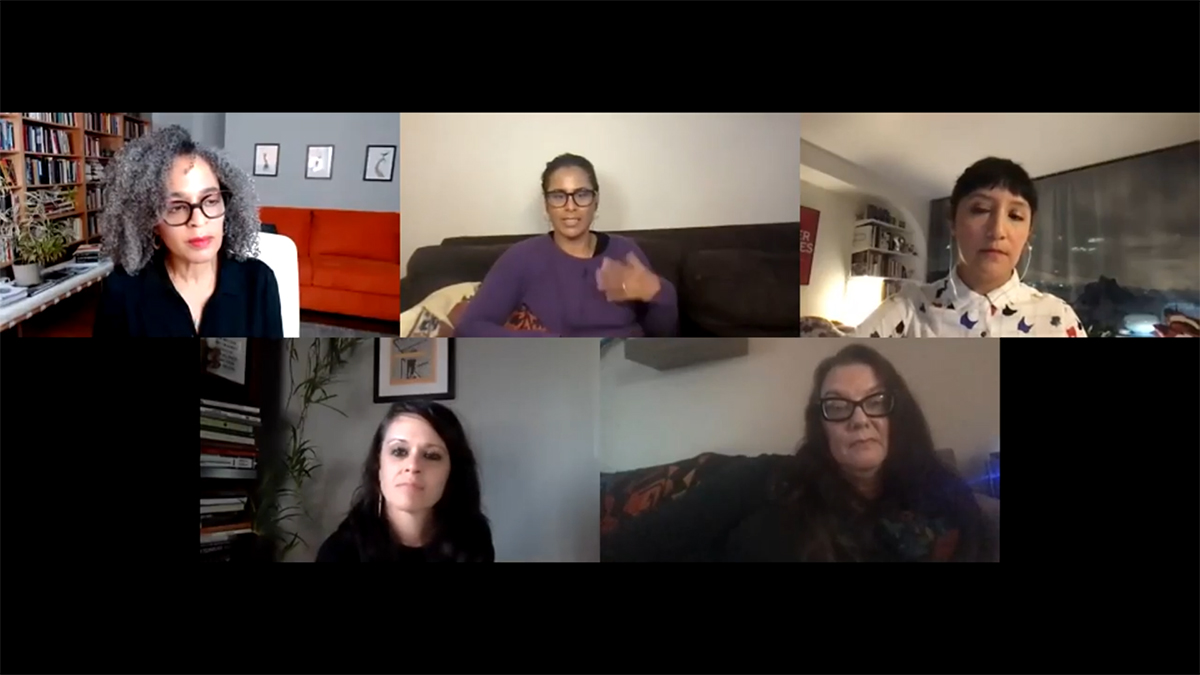Call for Proposals: Faculty Spotlight Exhibitions at the IAS
May 29, 2025UC Santa Cruz faculty across the divisions are invited to submit a proposal for an exhibition of their artwork at the Institute...
The IAS will be closed December 22, 2025 - January 6, 2026


February 9, 2021 @ 4:00 pm – 5:30 pm
Featured Music Video by Jason Moran and Kyle Abraham
January 19, 2021, 4-5:30 p.m.
Joanne Barker is Lenape (a citizen of the Delaware Tribe of Indians). She is professor and chair of American Indian Studies at San Francisco State University. She is currently serving on The Segora Te Land Trust Board and The Critical Ethnic Studies Journal Board. Barker is the author of Native Acts: Law, Recognition, and Cultural Authenticity, and the editor of Sovereignty Matters: Locations of Contestation and Possibility in Indigenous Struggles for Self-Determination.
Maria Gaspar is an interdisciplinary artist whose work addresses issues of spatial justice in order to amplify, mobilize, or divert structures of power through individual and collective gestures. Through installation, sculpture, sound, and performance, Gaspar’s practice situates itself within historically marginalized sites and spans multiple formats, scales, and durations to produce liberatory actions. Gaspar’s projects have been supported by the Art for Justice Fund, the Robert Rauschenberg Artist as Activist Fellowship, the Creative Capital Award, the Joan Mitchell Emerging Artist Grant, and the Art Matters Foundation. Maria has received the Sor Juana Women of Achievement Award in Art and Activism from the National Museum of Mexican Art, and the Chamberlain Award for Social Practice from the Headlands Center for the Arts. Gaspar has lectured and exhibited extensively at venues including the Contemporary Arts Museum, Houston, TX; the Museum of Contemporary Art, Chicago, IL; the African American Museum, Philadelphia, PA; and the Institute of Contemporary Art, Los Angeles. She is an Assistant Professor at the School of the Art Institute of Chicago, holds an MFA in Studio Arts from the University of Illinois at Chicago, and a BFA from Pratt Institute in Brooklyn, NY.
Kelly Lytle Hernández is a professor of History, African American Studies, and Urban Planning at UCLA where she holds The Thomas E. Lifka Endowed Chair in History. She is also the Director of the Ralph J. Bunche Center for African American Studies at UCLA. One of the nation’s leading experts on race, immigration, and mass incarceration, she is the author of the award-winning books, Migra! A History of the U.S. Border Patrol (University of California Press, 2010), and City of Inmates: Conquest, Rebellion, and the Rise of Human Caging in Los Angeles (University of North Carolina Press, 2017).
Visualizing Abolition is organized by UC Santa Cruz Institute of the Arts and Sciences.